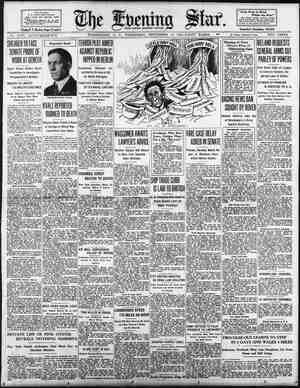New Britain Herald Newspaper, September 11, 1929, Page 11
You have reached the hourly page view limit. Unlock higher limit to our entire archive!
Subscribers enjoy higher page view limit, downloads, and exclusive features.
4 A QIEEEe R R e e e SR e = e |} oo 3| e |} e B 11 s LU e | ] o V\TEW BRITAIN DAILY HERALD WEDNESDAY, SEPTEMBER 11, 1929 RANSPORTATION ‘ EcoNOMICAL T 't All The People 'I:l/enty-one years ago, when the Model T was first made, and again in December, 1927, when the new Ford was introduced, the policy of the Ford Motor Company was announced in these words— “We will build a motor car for the great multitude. 1t will be large enough for the family, but small enough for the individual to run and care for. It will be constructed of the best materials, by the best men to be hived, after the simplest designs that modern engineering can devise. But it no man mzzking a good wage | ORE than seventeen million Ford auto- M mobiles have been made since this announcement was first printed. The passing years have brought many changes—in appear- ance—in performance—in manner of man- ufacture. But there is one thing that has never changed—the fundamental idea behind the Ford car. The Ford Motor Company was formed, and exists today, not merely to make automobiles but to provide economical transportation for all the people. Far more important than the car itself is the part it plays in the lives, the happiness, and the prosperity of millions of people. Before the Ford was introduced the auto- mobile was considered more or less as an expensive toy, for only the wealthy to drive. There was no conception of its uses and pos- sibilities as we know them today. It was accepted in much the same manner that the sirplane was accepted five years ago, Great will be so low in price that will be unable to own one.” emphasis was placed upon its racing speed and very little upon its practical utility. With the coming of the Ford, however, it became possible for men in all walks of life to enjoy the benefits of transportation that formerly had been limited to a fortunate few. A great change cams over the country and with it a new prosperity. By freeing the move- ments of men, the Ford also freed their thoughts and created new opportunitics. The barriers of time and distance were broken down. Good roads followed close behind the automobile and the isolation of country districts dis- appeared. The nation grew as people learned to use this newly developed horse-power and fit it to their needs. Into the hands of men of moderate means —to the workers in factories—to the toilers on the farm—was given a means to increase their income and enjoy the leisure which that Forp MoTOR COMPANY working day became shorter because men could do in eight hours the tasks that pre- viously had taken ten or twelve—and do them better. Always it should be remembered that we do not have automobiles because we are prosperous. We are prosperous because we have them. Today, ‘With all its improvements—with all its new beauty of line and color—with all the betterments and changes that have been made during the past twenty-one years—the Ford is still a “motor car for the great multitude.” It is not just 2 new automobile—not just so many mechanical parts carefully put together to run on wheels—but Progress— Achieve- ment—a part of the very life and fabric of the nation. Business of cvery kind moves forward at 3 faster pace because of it. To countless homes it brings the rewards of widening opportunity, happiness, and priceless hours of relaxation in the open air. All of this not merely because of its safety, its comfort, its reliability, its speed, its acceleration, its ease of control, but because of 2 fundamental pur. pose that is greater than all of these. Because, in larger degree than ever, it provides economical increased income should bring. They Detrbit, Michigaa transportation for all the people




